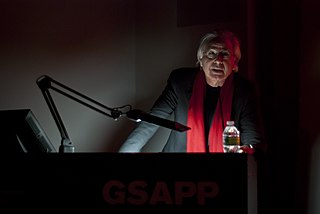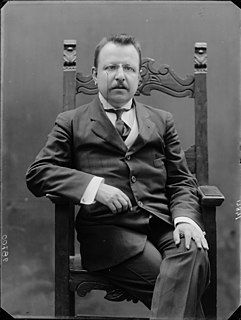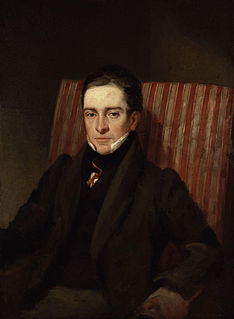A Quote by Bernard Tschumi
Architecture is not so much a knowledge of form, but a form of knowledge.
Quote Topics
Related Quotes
It is easy to see, though it scarcely needs to be pointed out, since it is involved in the fact that Reason is set aside, that faith is not a form of knowledge; for all knowledge is either a knowledge of the eternal, excluding the temporal and historical as indifferent, or it is pure historical knowledge. No knowledge can have for its object the absurdity that the eternal is the historical.
Julie Taymor. She is my gold standard of stage directors. I think she has a comprehensive knowledge of theatrical form, since she lived in Indonesia, Java, Japan and France. Her knowledge of form is limitless. Whenever I get painted in a corner, I think about what form she would use, because that is what she practices. It's about accessing the theater traditions of the whole world.
We should not be content to say that power has a need for such-and-such a discovery, such-and-such a form of knowledge, but we should add that the exercise of power itself creates and causes to emerge new objects of knowledge and accumulates new bodies of information. ... The exercise of power perpetually creates knowledge and, conversely, knowledge constantly induces effects of power. ... It is not possible for power to be exercised without knowledge, it is impossible for knowledge not to engender power.
To me, form doesn't always follow function. Form has a life of its own, and at times, it may be the motivating force in design. When you're dealing with form as a sculptor, you feel that you are quite free in attempting to mould and shape things you want to do, but in architecture, it's much more difficult because it has to have a function.
So the problem in the West is that, especially in places like the USA, a person will obtain this much knowledge and immediately think that they have a large amount of knowledge. And then start to act on the basis of what they think, they posses. Instead of having this much knowledge and realizing that in fact this is only this much knowledge and the amount of where you can go there is where you came is much bigger than where you've already gotten.
Very great personages are not likely to form very just estimates either of others or of themselves; their knowledge of themselves is obscured by the flattery of others; their knowledge of others is equally clouded by circumstances peculiar to themselves. For in the presence of the great, the modest are sure to suffer from too much diffidence, and the confident from too much display.







































